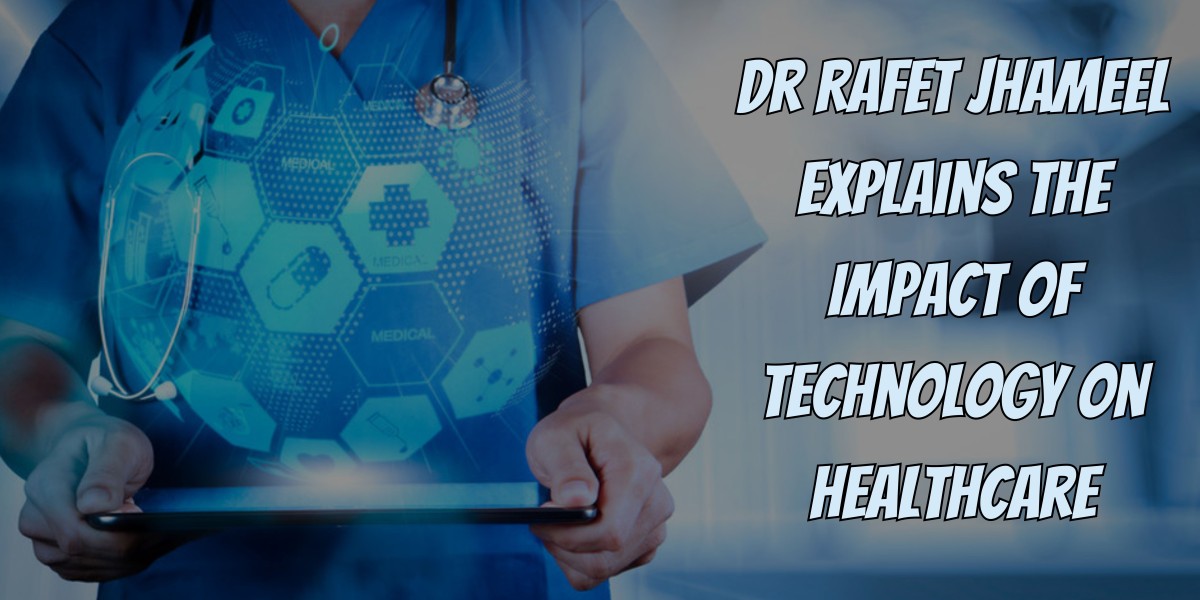Technology has revolutionized nearly every aspect of our lives, and the field of healthcare is no exception. From electronic health records to telemedicine and innovative medical devices, technology has brought significant advancements that have improved patient care, enhanced efficiency, and transformed the healthcare landscape. Dr Rafet Jhameel, a renowned expert in healthcare technology, sheds light on the profound impact technology has had on healthcare and its potential for the future.
One of the most notable contributions of technology to healthcare is the advent of electronic health records (EHRs). Dr Rafet Jhameel emphasizes that EHRs have revolutionized the way patient information is stored, managed, and shared. Gone are the days of bulky paper files and laborious manual record-keeping. EHRs enable healthcare providers to access comprehensive patient data quickly and securely, facilitating more informed decision-making and coordinated care across multiple providers and settings.
Telemedicine is another transformative technology that has gained prominence, especially in recent years. Dr Rafet Jhameel explains that telemedicine allows patients to receive medical consultations and treatment remotely, eliminating the need for in-person visits in certain cases. This technology has been particularly valuable in rural and underserved areas, where access to healthcare services may be limited. It has also played a critical role during the COVID-19 pandemic, enabling safe and convenient healthcare delivery while reducing the risk of transmission.
Technology has enhanced patient care and also made healthcare systems more productive. Dr Rafet Jhameel makes the point that administrative tasks like appointment scheduling, billing, and inventory management have benefited from automation and digitization since it has streamlined operations, decreased errors, and given medical personnel more time to turn their attention to patient care. Furthermore, the implementation of advanced analytics and data-driven insights has enabled healthcare organizations to identify patterns, predict outcomes, and optimize resource allocation, leading to better outcomes and cost savings.
Medical devices and wearable technologies have also transformed healthcare delivery. Dr. Jhameel highlights the significant advancements in diagnostic tools, monitoring devices, and prosthetics that have greatly improved patient outcomes. For example, wearable fitness trackers and smartwatches now allow individuals to monitor their vital signs, exercise levels, and sleep patterns, empowering them to take a proactive approach to their health. Additionally, the invention of robotic surgical equipment and minimally invasive techniques has revolutionized surgery, offering higher precision, quicker recovery periods, and reduced risks.
Dr. Jhameel believes that the future holds even more exciting possibilities for technology in healthcare. He envisions the widespread use of artificial intelligence (AI) and machine learning algorithms to assist in medical diagnostics, drug discovery, and treatment planning. These technologies have the potential to augment healthcare professionals' capabilities, improve accuracy, and enhance patient outcomes. Additionally, improvements in genomics and personalized medicine will make it possible to personalize medicinal products based on a person's genetic profile, providing treatments that are more accurate and successful.
Despite technology's numerous advantages for healthcare, Dr. Jhameel recognizes the importance of addressing potential risks and obstacles. He emphasizes the need for robust cybersecurity measures to safeguard patient data and protect against breaches. Furthermore, ensuring equitable access to technology and addressing the digital divide is crucial to prevent exacerbating health disparities.
In conclusion, technology has significantly changed how healthcare is provided and how people receive it. From electronic health records to telemedicine, advanced diagnostics to AI-driven insights, technology has improved patient care, enhanced efficiency, and paved the way for personalized medicine. Dr. Rafet Jhameel's insights underscore the tremendous potential of technology to continue revolutionizing healthcare, while also emphasizing the need for responsible implementation and addressing associated challenges.








